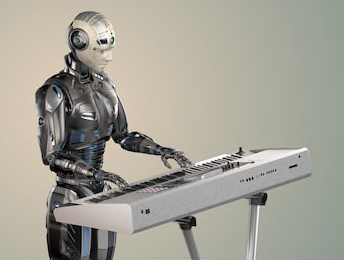This may be slightly controversial in some quarters, but I constantly see a slew of self-taught ‘experts’ on You Tube, shouting about how good they are, but showing appalling technique and possessing less than pedestrian abilities. So I thought I’d share some insight from REAL experts with you as to why this might be.
Here is a thread from one of my piano forums, comprised of both students and teachers, offering their thoughts on why face-to-face (or online lessons with a human) win every time.
What can we learn from teachers that an app can’t show us?
- Technique, feel and nuance.
- I think for me, it would be the personalisation. An app will only deal with generics and will not be monitoring the particular nuances that each student has. As a teacher you respond to the students’ individual needs and adapt your teaching accordingly.
- The teacher will point out the mistakes immediately and help you overcome a specific problem, while an app only gives you clues and no feedback on your work.
- The app does not spot where you are going wrong, nor does it teach shortcuts in theory.
- The teacher can suggest learning certain pieces that will help you improve while the app makes you learn pieces you might not be interested in, but you still need to learn them to complete the level in the app.
- The good teacher will be able to see your weaknesses and adjust the teaching method etc. No app can do that.
- Sitting position/posture. Use of hands/wrists. General technique.
- The good teacher will suggest videos, books and other useful resources, the app might show some extras but can’t fully personalise them.
- Quite simply, a teacher can give you bespoke advice on technique, posture, interpretation, the best exercises for you and such, based on their observation of you playing. An app, even a richly featured one, could not do that.
- An app cannot contextualise the music for you or give you an understanding of style and the pianistic techniques used to express style and period etc. It also won’t give you the theoretical understanding of the music that a good teacher can. It’s a one-dimensional experience as opposed to a holistic one.
- One of my students summed it up really well the other day. He said the apps teach you to follow the app (that might be learning to read the notes) but what it doesn’t teach you is music. It doesn’t teach you all the bits surrounding that particular exercise and when you try to move away you get stuck. He used an example of someone he had been talking to in the ***** ***** Facebook group who had tried to improvise around the song he was learning but realised he didn’t have a clue what he was doing. He said it was a complete disaster. Now I thought that was very illuminating as a teacher would be able to highlight some positives from the ”disaster” and turn the rest into learning points. This chap just gave up.
- A teacher gives you a personal relationship, interaction & connections, all of which are invaluable.
- All of the above, plus an app can’t teach you to listen to the sound you are making and connect it to the technique you are using. Plus musical imagination communicates heart to heart, none of which can happen with an app.
- Enthusiasm and energy are 2 things an app or online won’t give you. The crackle of excitement between teacher and pupil as something is achieved and the response to the shining eyes of joy in music is impossible to replicate without a teacher.
- Personal encouragement and a friendly atmosphere.
- All of the above, and I would add musicianship.
- Developing musicality, sharing ideas, learning good technique, problem solving.
- You need expert supervision if you plan to do significant practice. Otherwise you’re setting yourself up for tendon inflammation.
- I am a mature piano student. I have a slight physical weakness in one of my fingers which we only discovered after a few months of playing finger-strengthening exercises. My excellent piano teacher recognised it and changed some of the exercises to accommodate and improve the weakness. This could never have been recognised by an app and continuing without the changes my teacher made could have caused permanent injury.
-
I’m an adult learner, I can learn songs on my own in terms of getting my finger on the right keys (with a few exceptions where I miss a sharp or flat!). My teacher often helps me correct rhythm issues and without a teacher, I wouldn’t be playing ornaments/dynamics/peddling properly or even at all. I’ve found that those things that really make a piece sound impressive and ‘finished’ are the things I don’t have the experience just do naturally and I find that feedback really valuable.
- The app doesn’t provide interaction with other musicians. The app does not teach how to phrase and give colour to the music. The app is just a note playing exercise and teaches nothing about music.
- The very physical presence of a good, engaging teacher can never be replaced by a computer screen. We need to feel their presence too. It’s when good, creative learning ensues.
- Looking at the ads for ***** ***** that pop up all the time, the thing that causes me to scream ‘ please get a teacher’ in my head is the total lack of healthy technique and posture at the piano.
- Praise and encouragement!
- Personalised feedback and interaction – invaluable.
So there you have it! I hope this gives you some food for thought. Happy practising!
